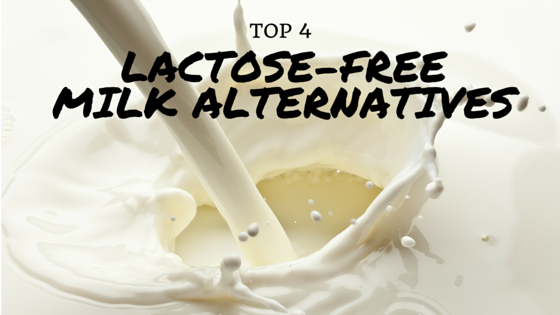Up to 65% of adults have some level of difficulty digesting lactose, a type of sugar found in milk, according to the Lister Hill National Center for Biomedical Communications. During infancy and early childhood, the body naturally produces an enzyme that breaks down lactose. For some people, however, the activity of this enzyme drops significantly in adolescence and adulthood. Problems digesting dairy products may result in abdominal pain, flatulence, bloating, or diarrhea.
No matter whether you have lactose intolerance, a dairy allergy, or simply find that milk does not agree with your digestive system, it is possible to find a good milk substitute. Try sampling several types of lactose-free milk alternatives to find the one that is best for you. Adding a daily health supplement can also help to regulate your digestion if you find that you’re frequently experiencing digestive distress.
Soy Milk
Soy milk is created by mixing ground soybeans with water, resulting in a creamy milk substitute. Most commercial varieties of soy milk have a small amount of added sugar and are fortified with vitamin D, calcium, and vitamin. This allows soy milk to more closely resemble the texture and nutrition of cow’s milk.
In general, a glass of soy milk contains 60 to 90 calories and 4 to 6 grams of protein. It may also have up to 2 grams of fat. Look for containers with a verified non-GMO label to ensure that your brand is not made from genetically modified soybeans.
Almond Milk
Almond milk is created from ground almonds and water, making it a naturally low-calorie milk alternative. Each serving contains 30 to 50 calories and up to 1 gram of protein. When purchasing almond milk, check the label for sugar content, because some brands heavily sweeten the product.
Coconut Milk
Although canned coconut milk is thick and rich, the milk that comes in cartons has been watered down to mimic the consistency of cow’s milk. For those who enjoy the creamy consistency of cow’s milk, coconut milk is an appealing substitute. Bakers will enjoy its ability to easily substitute for cow’s milk while adding a subtle, sweet coconut flavor. However, coconut milk has no protein, so make sure you find alternative protein sources to give your body fuel.
Rice Milk
Rice milk is a great option for people with soy, nut, or dairy allergies. Typically, one serving of rice milk contains between 90 and 130 calories and 2 to 2.5 grams of fat. Its protein content is lower than other lactose-free milk alternatives, at just 1 gram per serving.
Although rice milk makes a tasty dairy substitute and is often fortified with iron, vitamin B12, and calcium, you should be careful about the amount of this beverage you enjoy. A 2008 study published by the Royal Society of Chemistry found that the levels of inorganic arsenic in rice milk exceed those recommended by the Food and Drug Administration. Long-term arsenic exposure is associated with cancer and heart disease, so it may be smart to limit your consumption of rice milk to no more than one serving per day.
Disclaimer
These statements and products have not been evaluated by the food and drug administration “FDA” and are not intended to diagnose treat, cure or prevent any disease. The products, nutrition, and or lifestyle suggestions on this site, or in this blog or any of its written content, you should always consult your primary care physician before taking any of these things into consideration.





